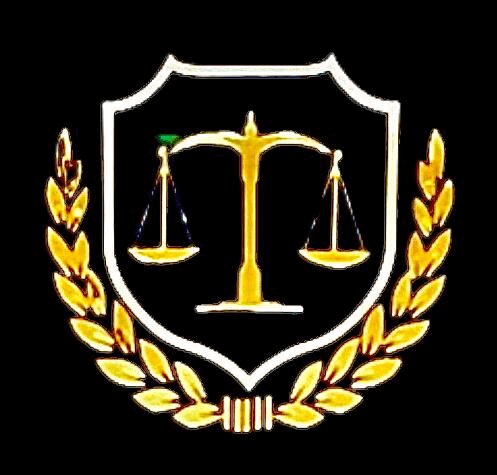Best Education Law Lawyers in Riyadh
Share your needs with us, get contacted by law firms.
Free. Takes 2 min.
List of the best lawyers in Riyadh, Saudi Arabia
About Education Law in Riyadh, Saudi Arabia
Education Law in Riyadh, Saudi Arabia, primarily focuses on the legal frameworks that govern the functioning, administration, and regulation of educational institutions. It oversees the rights and obligations of students, teachers, and educational institutions. This area of law deals with various aspects such as admission policies, disciplinary actions, special education requirements, and the rights of students and educators. In Riyadh, Education Law is influenced by Islamic principles, national regulations, and international educational standards. Educational policies are typically mandated by the Ministry of Education, which plays a pivotal role in shaping educational legislation within the kingdom.
Why You May Need a Lawyer
Individuals and institutions may need legal assistance in the realm of Education Law for several reasons. Common situations include:
- Disputes over student admissions or expulsions
- Issues related to teachers' contracts and employment rights
- Bullying or harassment cases within educational settings
- Compliance with educational standards and policies
- Challenges regarding special education needs and accommodations
- Representation in disciplinary hearings or disputes
In these situations, a lawyer specializing in Education Law can provide essential guidance, representation, and ensure that all parties' rights are protected under the law.
Local Laws Overview
Education Law in Riyadh is guided by several key local legal principles and regulations:
- Compulsory Education: Saudi law mandates that children receive an education, generally up to the secondary level, and the government provides funding and resources to enforce this requirement.
- Educational Standards and Curriculum: The Ministry of Education sets the national curriculum standards, which must be adhered to by all educational institutions.
- Special Education Needs: There are specific provisions for students with special education needs to ensure they receive appropriate accommodations and support.
- Teachers’ Rights: There are regulations regarding employment contracts, working conditions, and dispute resolutions for educators.
- Student Rights: Policies exist to protect the welfare and rights of students, ensuring a safe and conducive learning environment.
Frequently Asked Questions
1. What is the legal age for compulsory education in Riyadh, Saudi Arabia?
Compulsory education in Saudi Arabia generally begins at age 6 and continues until the age of 15, covering primary and intermediate education levels.
2. Can foreign students attend public schools in Riyadh?
Foreign students may attend public schools in Saudi Arabia under specific conditions, primarily if they meet residency requirements or if their parents work in certain approved sectors.
3. How are disputes between teachers and school administrations resolved?
Disputes are typically resolved through internal mechanisms within educational institutions, or if necessary, through formal legal channels with the help of legal representation.
4. What rights do students have regarding religious practices in schools?
Since education in Saudi Arabia is governed by Islamic principles, the educational policy supports religious practices; however, accommodations for non-Muslim students might vary.
5. Are there laws protecting against bullying in schools?
Yes, there are regulations and policies aimed at preventing and addressing bullying in schools, ensuring a safe and respectful environment for all students.
6. What accommodations are available for students with disabilities?
Students with disabilities are entitled to appropriate educational accommodations, including tailored support plans and resources to facilitate their education.
7. Are there laws governing private educational institutions?
Yes, private schools must adhere to national education standards and regulations prescribed by the Ministry of Education, although they may have more flexibility in curriculum matters.
8. How does one report an educational law violation?
Violations can be reported directly to the educational institution involved or to the Ministry of Education for further investigation and action.
9. Are students allowed to participate in school governance?
While student participation in governance is not widespread, some institutions may allow students to play advisory roles or participate in dialogues regarding school policies.
10. What is the role of the Ministry of Education in legal matters?
The Ministry of Education oversees the implementation of educational laws and standards, providing guidance and support, and addressing legal grievances related to education.
Additional Resources
For those seeking more information or assistance, the following resources may be helpful:
- Ministry of Education: Official body responsible for education policy and regulation
- Legal Affairs Offices in educational institutions
- Non-profit organizations focusing on education rights and advocacy
- Professional legal associations and law firms specializing in Education Law
Next Steps
If you require legal assistance in Education Law, consider the following steps:
- Identify the specific legal issue or concern you face.
- Research and reach out to qualified lawyers or legal firms specializing in Education Law in Riyadh.
- Prepare all relevant documents and information related to your case.
- Consult with a lawyer to discuss your situation, legal rights, and potential courses of action.
- Follow legal advice and ensure you comply with all educational policies and regulations.
Engaging with a competent lawyer can provide the necessary expertise and support to navigate the complexities of Education Law in Riyadh, ensuring your rights and interests are effectively protected.
Lawzana helps you find the best lawyers and law firms in Riyadh through a curated and pre-screened list of qualified legal professionals. Our platform offers rankings and detailed profiles of attorneys and law firms, allowing you to compare based on practice areas, including Education Law, experience, and client feedback.
Each profile includes a description of the firm's areas of practice, client reviews, team members and partners, year of establishment, spoken languages, office locations, contact information, social media presence, and any published articles or resources. Most firms on our platform speak English and are experienced in both local and international legal matters.
Get a quote from top-rated law firms in Riyadh, Saudi Arabia — quickly, securely, and without unnecessary hassle.
Disclaimer:
The information provided on this page is for general informational purposes only and does not constitute legal advice. While we strive to ensure the accuracy and relevance of the content, legal information may change over time, and interpretations of the law can vary. You should always consult with a qualified legal professional for advice specific to your situation.
We disclaim all liability for actions taken or not taken based on the content of this page. If you believe any information is incorrect or outdated, please contact us, and we will review and update it where appropriate.











